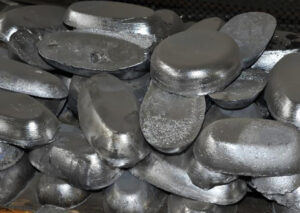
Kernel, one of Ukraine’s largest agricultural holdings, exported 1.3 million tons of grain in July-September 2026 (FY, July 2025-June 2026) exported 1.3 million tons of grain, which is 15% less than in the same period last year, but 27% more than in the previous quarter, thanks to greater availability of grain on the domestic market after the start of the winter wheat harvest.
According to the published quarterly report, wheat accounted for 74% of Kernel’s total exports, with the rest being corn and barley.
“The start of the new financial year for the Infrastructure and Trade segment was shaped by two key market dynamics: a delay in the harvesting campaign in Ukraine caused by weather conditions and slower-than-usual sales by farmers,” the agricultural holding said.
As a result, the cargo turnover of export terminals in the first quarter of FY 2026 amounted to 1.8 million tons, which is 17% less than in the same period last year, leading to a decrease in grain exports and the group’s overall sales portfolio of vegetable oils and meal.
Grain accounted for 75% of the total cargo turnover, edible oils for 13%, and vegetable meal for the rest.
The volume of grain received by silos in July-September 2026 FR amounted to 1.2 million tons, which is 34% less than in the previous year. Of this amount, 796 thousand tons were received from the agricultural holding’s own agricultural enterprises, and the rest from third-party suppliers.
“The decrease in arrivals mainly reflects the later start of the group’s harvesting campaign, as unfavorable weather conditions and uneven ripeness of crops in different regions delayed and reduced deliveries to warehouses,” Kernel explained.
The Infrastructure and Trade segment generated EBITDA of $20 million in the first quarter of 2026 FY, down 62% from the previous year.
Before the war, Kernel was the world’s leading producer of sunflower oil (about 7% of global production) and its exporter (about 12%). It is one of the largest producers and sellers of bottled oil in Ukraine. In addition, it is engaged in the cultivation and sale of agricultural products.

In Ukraine, oil flax remains a niche crop, but its gross harvest in the 2025-2026 marketing year (MY) will amount to 66 thousand tons, which is the highest result since the 2017/18 MY, according to the information and analytical publication UkrAgroConsult.
“Production is subject to fluctuations influenced by market factors and weather conditions. Since 2020, there has been a steady expansion of acreage. Growth is driven by demand from the EU, the main importer of flax. (…) The combination of expanded acreage and improved yields has been decisive. In the 2024/25 MY, there has been a partial recovery in yields, which are still below the crop’s potential,” analysts explained.
Experts noted that exports remain a key driver of the market — more than 80% of the Ukrainian flax harvest in 2024/25 MY is sent abroad. During the years of war, this share has more than doubled.
The main destination for flax sales is the EU (Italy, Poland, and Belgium are the top importers). After the start of the full-scale war, EU countries significantly reduced their purchases of Russian flax, reorienting themselves to alternative suppliers from Ukraine, Kazakhstan, and Canada.
At the same time, after peaking in 2023/24 MY (over 70 thousand tons), shipments from Ukraine decreased by approximately 24% in 2024/25 MY.
“The Ukrainian oil flax market is entering a phase of stable recovery. The crop is gradually regaining its position in the crop structure, forming a new niche for small and medium-sized agricultural producers. With support for exports and the development of processing, flax has the potential to establish itself as a promising alternative crop for the northern regions of the country, which are increasingly facing weather risks,” UkrAgroConsult concluded.

Imports of zinc and zinc products to Ukraine in January-October 2025 decreased by 8% to $45.52 million, while exports tripled to $1.14 million.
In October, imports amounted to $4.3 million, exports — $0.19 million.
In 2024, zinc imports increased by 27.5% to $58.61 million, and exports increased 3.4 times to $0.56 million.
Pure metallic zinc is used to recover precious metals, protect steel from corrosion, and for other purposes.

Ukraine sharply increased imports of lead and lead products—by 8.9 times, to $6.89 million in the first ten months of 2025.
At the same time, exports fell by 16.4% to $8.17 million.
For comparison, in 2024, lead imports increased 2.4 times to $2.39 million, while exports fell by almost a quarter to $11.4 million.
Lead is currently mainly used in the production of lead-acid batteries for the automotive industry. In addition, lead is used in the manufacture of bullets and certain alloys.

In January-October of this year, Ukraine reduced exports of carbon steel semi-finished products in physical terms by 35.5% compared to the same period last year, to 1 million 79,360 thousand tons.
According to statistics released by the State Customs Service (SCS) on Wednesday, in monetary terms, exports of carbon steel semi-finished products fell by 38% to $512.964 million.
The main exports were mainly to Bulgaria (35.78% of supplies in monetary terms), Poland (17.72%), and Turkey (16.54%).
During the period in question, Ukraine imported 83,788 thousand tons of semi-finished products worth $62.282 million, mainly from Oman (35.57%), Germany (23.53%), and the Czech Republic (15.84%), while in the first 10 months of 2024, it imported 15 tons of semi-finished products worth $33 thousand.
As reported, in 2024, Ukraine increased its exports of semi-finished carbon steel products in physical terms by 56.7% compared to 2023, to 1 million 886,090 tons, while revenue in monetary terms increased by 52.4% to $927.554 million. The main exports were to Bulgaria (32.06% of supplies in monetary terms), Egypt (18.50%), and Turkey (11.14%).
In 2024, Ukraine imported 306 tons of semi-finished products worth $278 thousand from the Czech Republic (88.13%), Romania (7.19%), and Poland (2.88%), while in 2023, it imported 96 tons worth $172 thousand.

In January–October this year, Ukraine reduced manganese ore exports by 30.8% compared to the same period last year, to 13,732 thousand tons, but in August–October, it stepped up deliveries.
According to statistics released by the State Customs Service (SCS), while deliveries in the first seven months of 2025 amounted to 2,977 thousand tons, exports more than doubled in August, when 5,037 thousand tons were exported, 1,725 thousand tons in September, and 3,993 thousand tons in October.
In monetary terms, exports for the ten months of 2025 fell by 17.4% compared to the same period in 2024, to $2.214 million. At the same time, the main exports were to Slovakia (98.74% of shipments in monetary terms) and Poland (1.26%).
There were no imports of manganese ore during this period.
As reported, in January 2024, Ukraine exported 44,903 thousand tons of manganese ore worth $6.563 million to the US, ending a two-year hiatus in exports to foreign markets. In February-December 2024, there were no exports of manganese ore.
At the same time, for the whole of 2024, the country imported 84,293 thousand tons worth $18.302 million from Ghana (98.85%), Brazil (0.99%), and Belgium (0.11%). There were no imports in October-November.
Ukraine did not export manganese ore in 2022 and 2023, and in 2021, it exported 770 tons worth $89 thousand.
In addition, it was reported that the Pokrovsky Mining and Processing Plant (PGZK, formerly Ordzhonikidze Mining and Processing Plant) and the Marganetsky Mining and Processing Plant (MGZK, both in Dnipropetrovsk region), which are part of the Privat Group, stopped mining and processing raw manganese ore in late October-early November 2023, while NZF and ZZF stopped smelting ferroalloys. In the summer of 2024, ferroalloy plants resumed production at a minimum level.
PGZK and MGZK did not produce any products in 2024, while in 2023, PGZK produced 160.31 thousand tons of manganese concentrate, and MGZK was idle.
In Ukraine, manganese ore is mined and enriched by the Pokrovsky and Marganetsky mining and enrichment plants.
The consumers of manganese ore are ferroalloy enterprises.